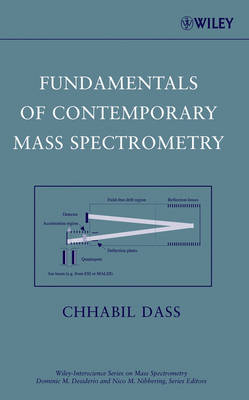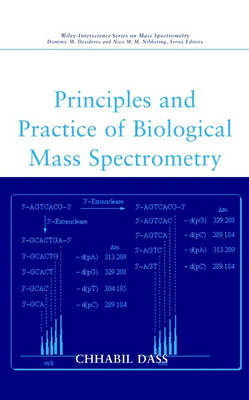Wiley-Interscience Series on Mass Spectrometry
2 total works
Mass spectrometry has played a pivotal role in a variety of scientific disciplines. Today it is an integral part of proteomics and drug discovery process. Fundamentals of Contemporary Mass Spectrometry gives readers a concise and authoritative overview of modern mass spectrometry instrumentation, techniques, and applications, including the latest developments. After an introduction to the history of mass spectrometry and the basic underlying concepts, it covers:
- Instrumentation, including modes of ionization, condensed phase ionization techniques, mass analysis and ion detection, tandem mass spectrometry, and hyphenated separation techniques
- Organic and inorganic mass spectrometry
- Biological mass spectrometry, including the analysis of proteins and peptides, oligosaccharides, lipids, oligonucleotides, and other biological materials
- Applications to quantitative analysis
Based on proven teaching principles, each chapter is complete with a concise overview, highlighted key points, practice exercises, and references to additional resources. Hints and solutions to the exercises are provided in an appendix. To facilitate learning and improve problem-solving skills, several worked-out examples are included.
This is a great textbook for graduate students in chemistry, and a robust, practical resource for researchers and scientists, professors, laboratory managers, technicians, and others. It gives scientists in diverse disciplines a practical foundation in modern mass spectrometry.
This is followed by practical, well-illustrated instances of important mass spectrometric techniques, including: Tandem mass spectrometry Collision-induced dissociation Molecular mass determination Coupling of mass spectrometry with separation techniques Quantification The final portion of the book is devoted to an exploration of contemporary approaches to the characterization of the various classes of compounds relevant to the biological sciences. While the emphasis is on proteins and peptides, nucleic acid, carbohydrates, and lipids, pharmaceutical drugs and metabolites also receive extensive coverage. Throughout, coverage is generously supplemented with examples of applications across a wide range of commercial and academic venues. Principles and Practice of Biological Mass Spectrometry is an invaluable working resource for chemists, biochemists, biologists, molecular biologists, biomedical researchers, pharmacologists, immunologists, forensic scientists, environmental scientists, and all whose research involves the analysis of biological compounds.

